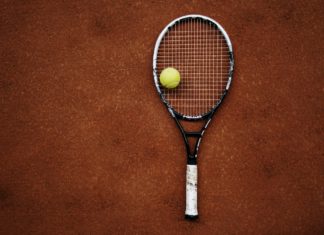Whilst a number of leading figures in tennis, including world number one, Novak Djokovic, and the coach of Serena Williams, Patrick Moutraglou, have urged top players to contribute to those lower ranked professionals hit by the suspension of the sport due to the coronavirus, Dominic Thiem has little sympathy for them.
The Austrian world number three believes there are sections of society much more in need of assistance than his fellow competitors. He has got further, asserting than many of those further down the tennis ladder do not deserve help.
In an interview with an Austrian newspaper, he criticised the attitude of some players competing on the lower tier Futures circuit, arguing that many do not live professional lives, or exhibit the dedication needed to succeed in the sport. Thiem, who has reached three Grand Slam finals in the past two years (although he has lost each time) also asserts that neither he, nor any other of his fellow top pros, have been given anything, and they have had to work very hard to achieve the rewards that they receive.
Last week, Djokovic proposed a scheme whereby the players in the top 100 on the men’s ATP tour, would donate to a fund to provide financial assistance to those currently ranked outside the world’s top 5-. Players were asked to donate on a sliding scale, with those in the top five, asked to give US $30,000 each. However, after his latest comments, it seems that Thiem can be crossed off the list of potential donors.
The man ranked above him in the world rankings, and who beat him in all those three finals, Rafael Nadal, meanwhile is very downbeat about a return to competitive tennis any time soon. Speaking to the Spanish media, he said that international tennis requires travel every week, staying in hotels, and visiting different countries, all of which are impossible at the moment.
And, even if matches are played behind closed doors in the absence of fans, there is still a requirement for a minimum of people to organise a tournament, which, given health restrictions and guidelines on social distancing, all represent a major challenge for the foreseeable future.








